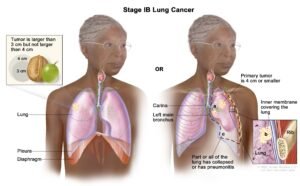Over 233,000 Bottles of Antidepressant Recalled Due to Cancer-Causing Chemical
FDA Recalls Over 233,000 Bottles of Duloxetine Due to Cancer-Causing Chemical
Overview of the Recall The FDA has issued a recall for over 233,000 bottles of the antidepressant duloxetine, due to the presence of a harmful substance known as N-nitroso-duloxetine, a potential carcinogen. This action follows a previous recall of more than 7,000 bottles of the same medication in October. The recall has been categorized as a Class II, which indicates that the contamination may lead to temporary or reversible health issues, but carries a low risk of serious harm.
How Did the Contamination Occur? The exact cause of the contamination is still under investigation, but it is believed to have occurred during the manufacturing or storage process. Nitrosamines, such as N-nitroso-duloxetine, are common environmental contaminants found in water and some foods. While the FDA has set acceptable daily intake limits for nitrosamines, it is nearly impossible to eliminate them completely. Prolonged exposure to high levels of these substances may increase the risk of cancer.
Understanding the Risks of Nitrosamines Nitrosamine contamination has been a growing concern in the pharmaceutical industry, leading to recalls of several medications in recent years, including metformin and valsartan. Nitrosamines are naturally occurring and present in small amounts in the environment. According to experts, daily exposure to nitrosamines below the established safe limits for a lifetime (70 years) is unlikely to significantly raise cancer risk.
What to Do If You Take Duloxetine Duloxetine is a selective serotonin and norepinephrine reuptake inhibitor (SNRI) commonly used to treat depression, anxiety, and certain pain disorders. If you are taking duloxetine, check to see if your medication is part of the recall. If it is, consult your healthcare provider before discontinuing the medication, as stopping suddenly can lead to withdrawal symptoms, including nausea, anxiety, and dizziness.
Alternatives to Duloxetine There are several other medications in the SNRI class, such as venlafaxine (Effexor) and desvenlafaxine (Pristiq), that can be used as alternatives. It’s important to work closely with your healthcare provider to safely transition to another medication if necessary.
What Does This Recall Mean for You? If you are currently using duloxetine, it is crucial to verify whether your medication is part of the recall. Always consult your doctor before stopping or changing your medication regimen to avoid potential withdrawal effects.
Frequently Asked Questions
-
How Did the Medication Get Contaminated?
The contamination likely occurred during the manufacturing or storage of the duloxetine, though the exact cause is still unclear. -
What Should You Do if You Take Duloxetine?
If your medication is part of the recall, discuss alternative treatments with your healthcare provider. Do not stop taking the medication without professional guidance.
Expert Tips
-
Always follow your doctor’s instructions when switching medications.
-
Regularly check for recalls on medications you use.
-
Be proactive in discussing concerns about drug safety with your healthcare provider.
Key Takeaways
-
Over 233,000 bottles of duloxetine have been recalled due to cancer risks from a contaminant.
-
Prolonged exposure to certain contaminants in medications may increase cancer risk.
-
Consult your healthcare provider if your medication is part of the recall and explore safe alternatives.










